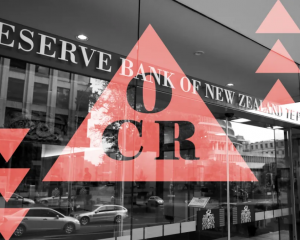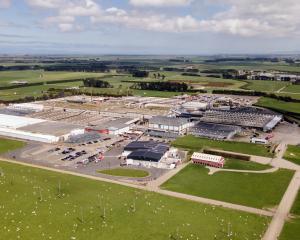Friday closings in the United States came as a shock to many investors, who believed the worst of the volatility was over as the Federal Reserve ended its bond-buying programme.
Craigs Investment Partners broker Chris Timms said yesterday the US reporting season, due to start today, could be the catalyst needed to spark some life into the markets.
After a sharp sell off in United States stocks, the main benchmarks last week recorded their deepest weekly falls in more than two years.
The technology-rich Nasdaq dropped 102 points, or 2.3%, and suffered its worst weekly decline since May 2012.
The index undercut a key support level, prompting fears of further falls.
The S&P fell 22 points, or 1.1%, losing 3.1% over the week, its biggest weekly drop since May 2012.
The benchmark index was a ''hair's breadth'' away from undercutting its key support level, he said.
The Dow Jones Industrial Average dropped 115 points, or 0.7%, on Friday and 2.7% over the week.
The blue-chip index turned negative for the year and also fell below its key support level.
''The whiplash equity moves have been characterised by a spike in volatility - a measure of fear in the markets - on concerns about slowing global growth.''
The widely watched CBOE VIX, a gauge of current fear in the market, surged 45% over the week and was at its highest level since February, Mr Timms said.
Inflationary pressure in the US remained muted, the main reason being falling oil prices.
The largest losers were in the technology sector, where internet stocks were hit the hardest.
Asia stocks joined Wall Street's sell-off, he said. Japan's benchmark Nikkei index hit a fresh two-month low.
Australia's S&P and ASX 200 indices closed at an eight-month low for the second time last week.
In Australia, coal shares suffered after China, the world's top coal importer, said it would levy import tariffs on the commodity.
And in China, profit-taking weighed on mainland shares after the Shanghai Composite index it hits highest levels since February 2013.
Caution also set in before a raft of September data due out next week.
Hong Kong's Hang Seng index tanked 1.8%, on track to post its largest percentage fall in two weeks and retreating from its previous two-week closing high, Mr Timms said.
Europe's main stock index posted its largest weekly slide in more than two years, after a week marred by concerns about the health of Germany's economy and broader weakness in the euro zone.
''Lacklustre readings on the manufacturing sector and weak export numbers for Germany have been fuelling fears of a recession in Europe's economic powerhouse, causing a wider sell-off in the equity markets.''
Additionally, the International Monetary Fund cut its 2014 growth outlook for the euro zone to 0.8%, down from a previous estimate of 1.1%, he said.
The economic woes for the euro zone continued with the release of data showing French industrial production had stagnated in August.
However, the NZX50 dropped only 0.8% as New Zealand was insulated from the rest of the world, Mr Timms said.
One potential catalyst to shift the bearish investor mindset was the US earnings season.
This week was the first big week of earnings with several big-name companies reporting, particularly in the financial and technology sectors.
Citigroup, JP Morgan, Bank of America, Wells Fargo, Goldman Sachs and Morgan Stanley all report this week, along with Google, ebay and Netflix from the technology sector.
''These two sectors have some of the lowest expectations for third-quarter earnings, with financials only expected to post 4.2% growth and tech not much higher at 5% - compared with the S&P 500 as a whole with 6.5% growth expected.
"Although there are a number of things to worry about at the moment, earnings season could be a reminder corporate America is in good and improving health,'' Mr Timms said.












